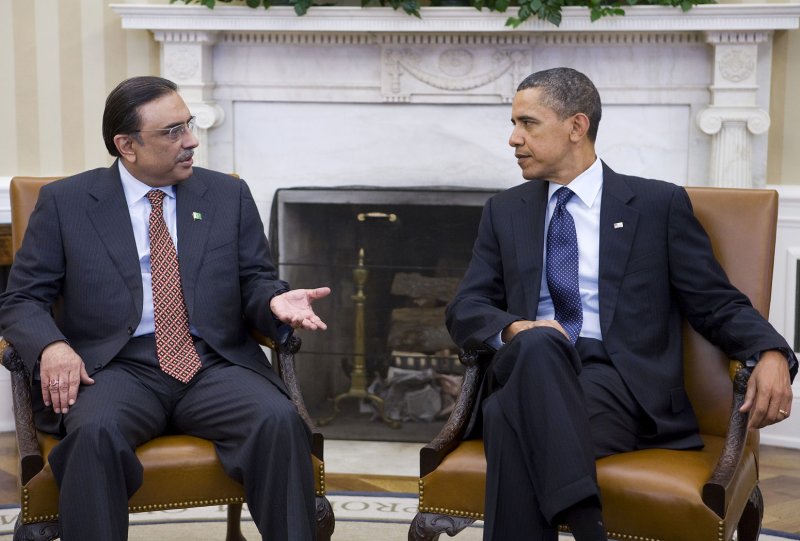1 of 2 | U.S. President Barack Obama meets with President Asif Ali Zardari of Pakistan in the Oval Office of the White House in Washington on January 14, 2011. UPI/Kristoffer Tripplaar/POOL |
License Photo
WASHINGTON, Jan. 14 (UPI) -- Pakistani counterinsurgency doctrine doesn't extend beyond the border into Afghanistan, an intelligence analyst said after U.S.-Pakistani talks in Washington.
Pakistani President Asif Ali Zardari arrived in Washington Thursday to attend a memorial service for U.S. Special Envoy for Pakistan and Afghanistan Richard Holbrooke.
Pakistan was included in 2009 in U.S. President Barack Obama's new war strategy for Afghanistan. Kamran Bokhari, director of Middle East and South Asia analysis for U.S. intelligence analysts at Stratfor, told Emirati newspaper The National that Islamabad and Washington might not have the same outlook for the region.
"The key issue is that there is a fundamental strategic difference of opinion on Afghanistan," he was quoted as saying.
Bokhari said the Pakistanis aren't that interested in hunting down al-Qaida and Taliban militants who are fighting on the Afghan side of the border.
"The strategic objective of Pakistan is that once (Washington) is done doing what it is doing (in Afghanistan), Pakistan will be in good shape," he said.
His analysis follows a stern message from U.S. President Joe Biden following a regional tour this week.
"It's going to require more pressure on the Taliban from Pakistan's side of the border, than we've been able to exert so far," said Biden of the war effort in Afghanistan.





